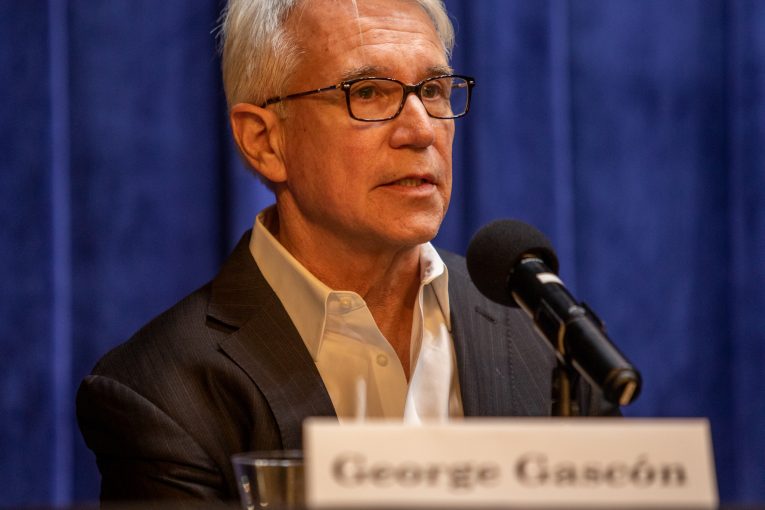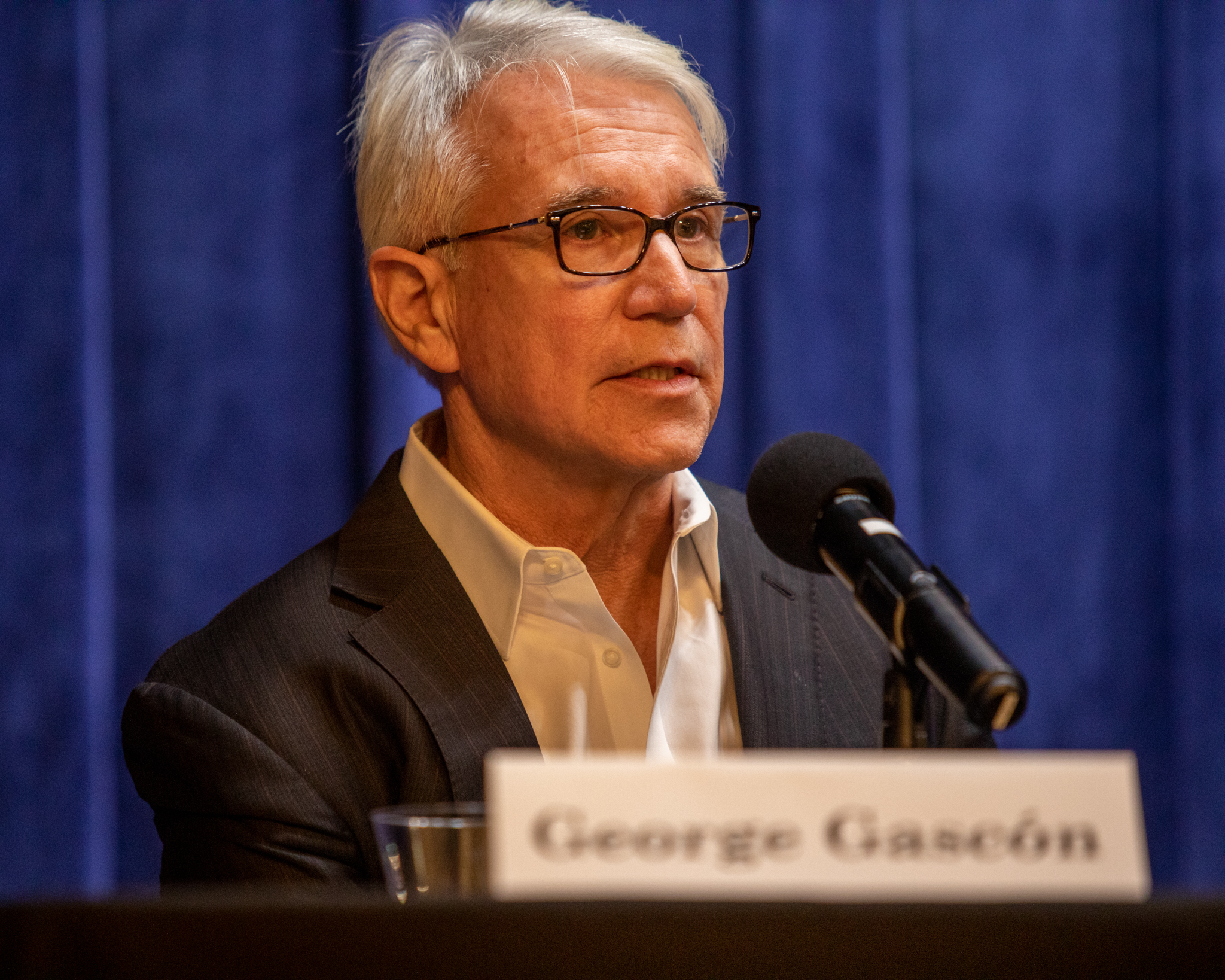

By David M. Greenwald
Executive Editor
Los Angeles, CA – District Attorney George Gascón was elected to the Los Angeles District Attorney’s office in November 2020 on a promise of reforming the criminal justice system—but as soon as he started to implement some of those reforms, including seeking to end the practice of charging and seeking sentencing enhancements that result in decades-long sentences, the Deputy DAs pushed back, filing a lawsuit and a recall campaign.
“What we’re asking basically is that the DA follow the law,” said Eric Siddall, the Vice President of the LA Association of Deputy District Attorneys as reported by a local radio station. “And that while we recognize, and I think all courts recognize, all parties recognize, that there is wide discretion [for the DA], there are certain things a DA must do, and this is one of those laws that he must follow.”
This week, about 67 current and former elected prosecutors from across the country, including two former LA County DAs, filed an amicus brief supporting Gascón’s “implementation of criminal justice reforms that are rooted in research and align with his commitment to the community to bring change to the Los Angeles  criminal legal system.”
criminal legal system.”
The brief was filed in response to the ADDA (Los Angeles County Association of Deputy District Attorneys) and their efforts to block Gascón from “carrying out policies he campaigned on and enacted upon assumption of office, including ending sentencing enhancements that have fueled mass incarceration and racial disparities, without improving community safety.”
Gascón has appealed a lower court ruling “that creates barriers to his ability to carry out the reforms that LA County voters embraced by electing him to serve as their District Attorney.”
“All prosecutors – including California District Attorneys – have well settled discretionary authority to make decisions that are fundamental to the allocation of scarce resources and the pursuit of justice,” the signatories argue in their brief.
They add, “Meaningful criminal justice reform requires elected prosecutors to implement and enforce policies to supervise their line attorneys’ exercise of discretion.”
Further, “Second-guessing the policy decisions of the elected prosecutor undermines local control and erodes the rights of voters to community self-governance.”
In essence, they argue that the ADDA is seeking to unlawfully and unconstitutionally infringe on decisions uniquely entrusted to the DA.
“The voters of Los Angeles elected DA Gascón because of his commitment to bring about fundamental change to the criminal legal system; any effort to prevent him from implementing this vision is an infringement on the will of the people and a violation of settled prosecutorial discretion,” said Miriam Krinsky, Executive Director of Fair and Just Prosecution and co-counsel on the brief.
She added, “Mass incarceration has come at a huge human and financial cost without making our communities any safer. DA Gascón has been entrusted by his community to change paradigms and put in place different data-driven strategies. The courts must adhere to the sanctity of separation of powers and allow him to do so.”
The brief argues that, upon taking office, DA Gascón “immediately sought to reform a number of long-standing prosecutorial practices that have swelled California’s incarcerated population with minimal benefits to public safety, if any at all.
“Ultimately there is no research that shows sentencing enhancements improve public safety, but there is evidence that excessive sentences increase recidivism and therefore create more victims in the future,” they write. “District Attorney Gascón was elected to reverse these trends, and his policies are based in empirical evidence and designed to advance public safety, community health, and equal justice throughout Los Angeles.”
“It is up to the duly elected district attorney – not the courts or line prosecutors – to determine policies within the DA’s office,” said Minnesota Attorney General Keith Ellison, a signatory to the brief. “For decades, prosecutorial discretion was respected even as it was used to lock more people up for longer sentences, which disproportionately impacted people of color and devastated communities without making them safer. Now, when discretion is being used to undo these harms, that same precedent must apply.”
“As an elected prosecutor, I make difficult decisions every day about which cases to prosecute and how to best use limited resources to promote justice and public safety. Prosecutorial discretion is constitutionally enshrined in California and cannot be usurped simply because someone disagrees with the elected district attorney’s approach,” said Contra Costa County, Calif. District Attorney Diana Becton, a signatory to the brief.
The brief also notes that, as elected officials, district attorneys are the ones directly accountable to their communities and must be allowed to follow through on the vision chosen by the voters: “The Superior Court’s intervention here set a dangerous precedent, allowing the Association (which opposed Gascón’s election) and unelected line prosecutors to strip the elected District Attorney of the autonomy to make decisions around the safety and well-being of the community. The decision also necessarily eroded the rights of local voters to have a say in that vision.”
“District Attorney Gascón ran on a clear platform of evidence-based criminal justice reforms rooted in justice, fairness and safety. Over two million Los Angeles residents voted for him, and it is essential that the elected DA has the authority to set broad office policy so that all who interact with the criminal legal system receive fair and equal treatment,” said District of Columbia Attorney General Karl Racine, another signatory to the brief.
“Nationwide, communities are retreating from the failed tough-on-crime policies that led to mass incarceration, including in Los Angeles, where the voters elected a district attorney who embraced a new approach to justice,” said Erwin Chemerinsky, Dean of the University of California at Berkeley School of Law and a co-counsel for amici. “It would be dangerous for the courts and deputy prosecutors to intrude on the discretion uniquely vested in the elected DA and on the will of the voters who have given DA Gascón a mandate for change.”

